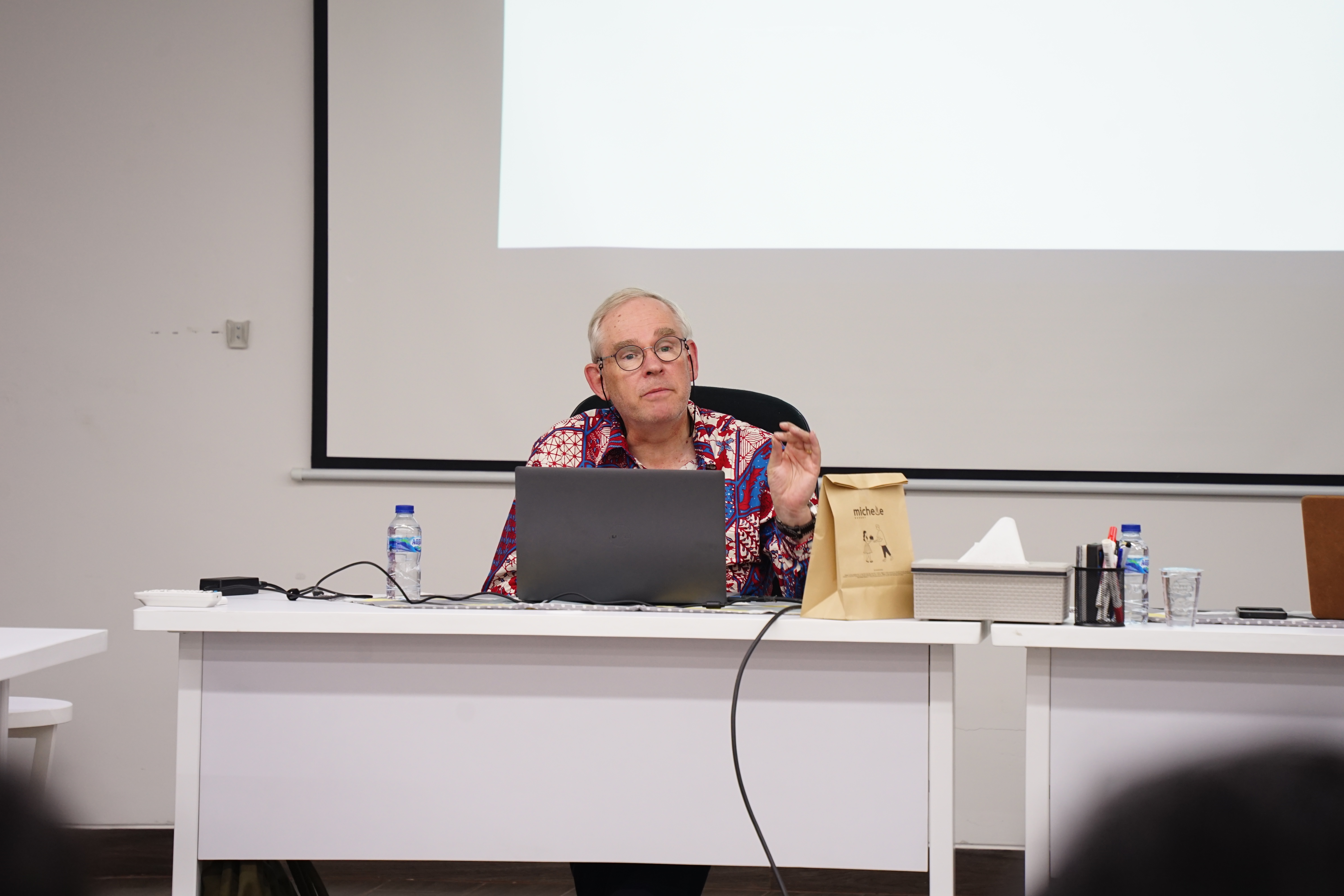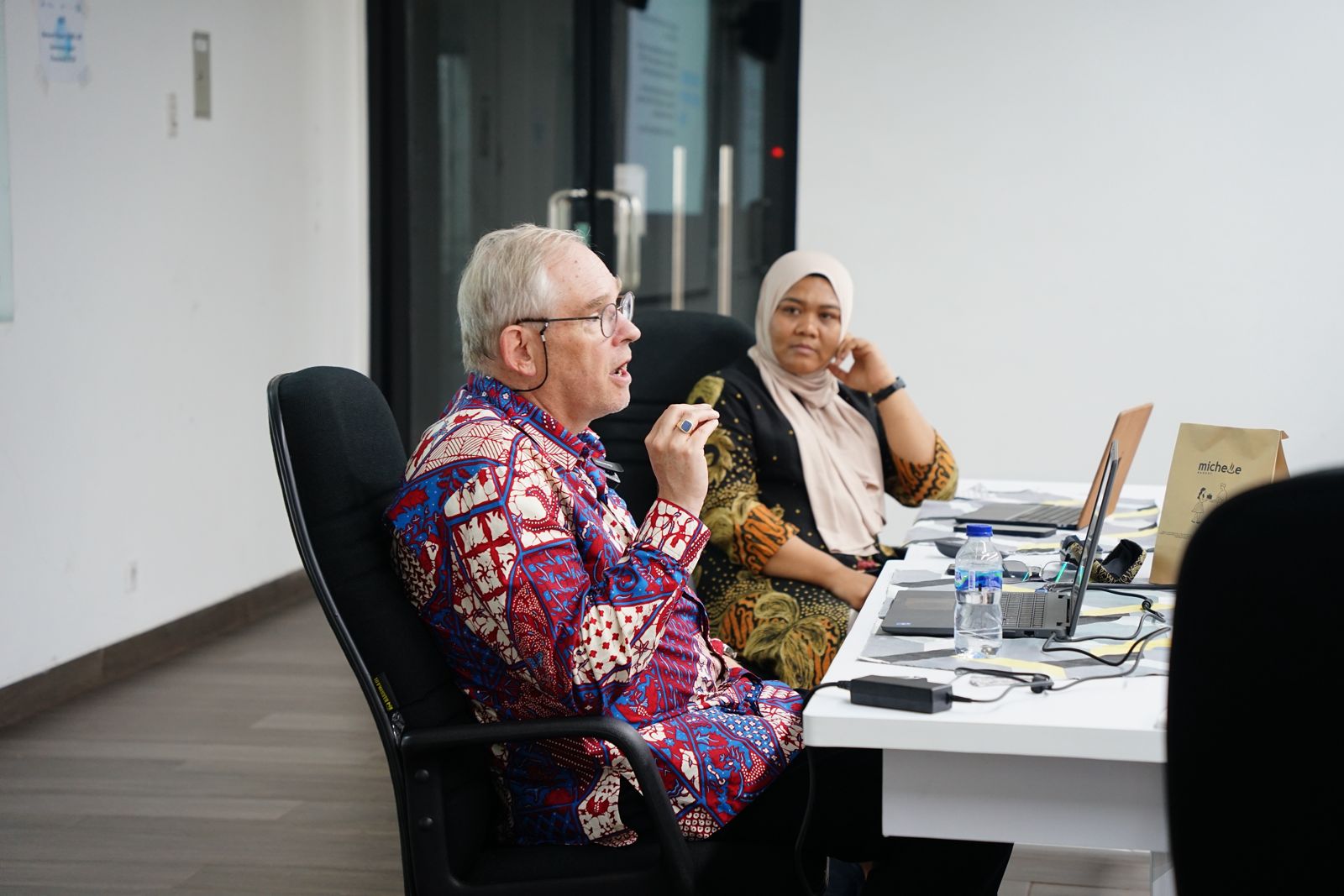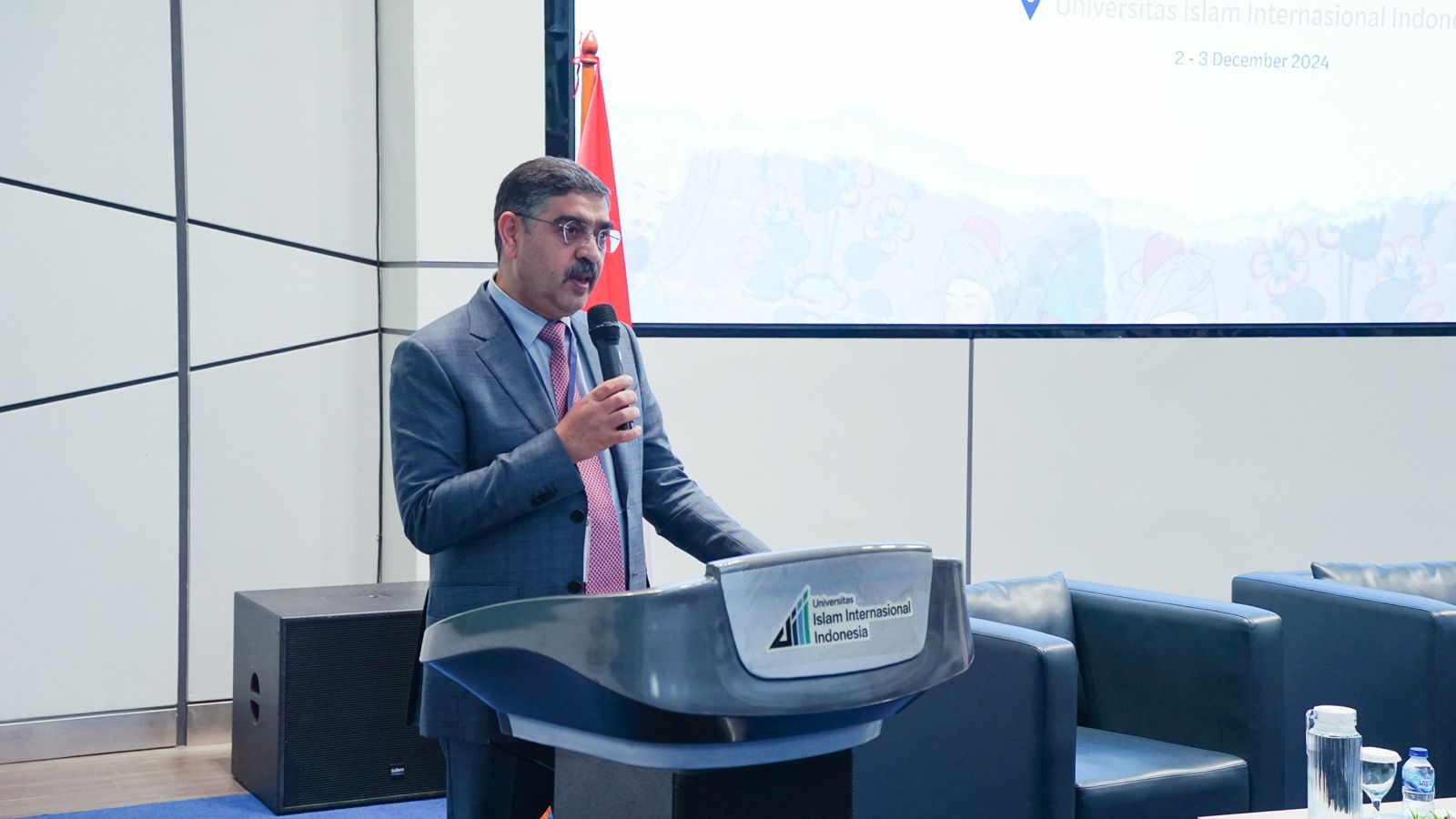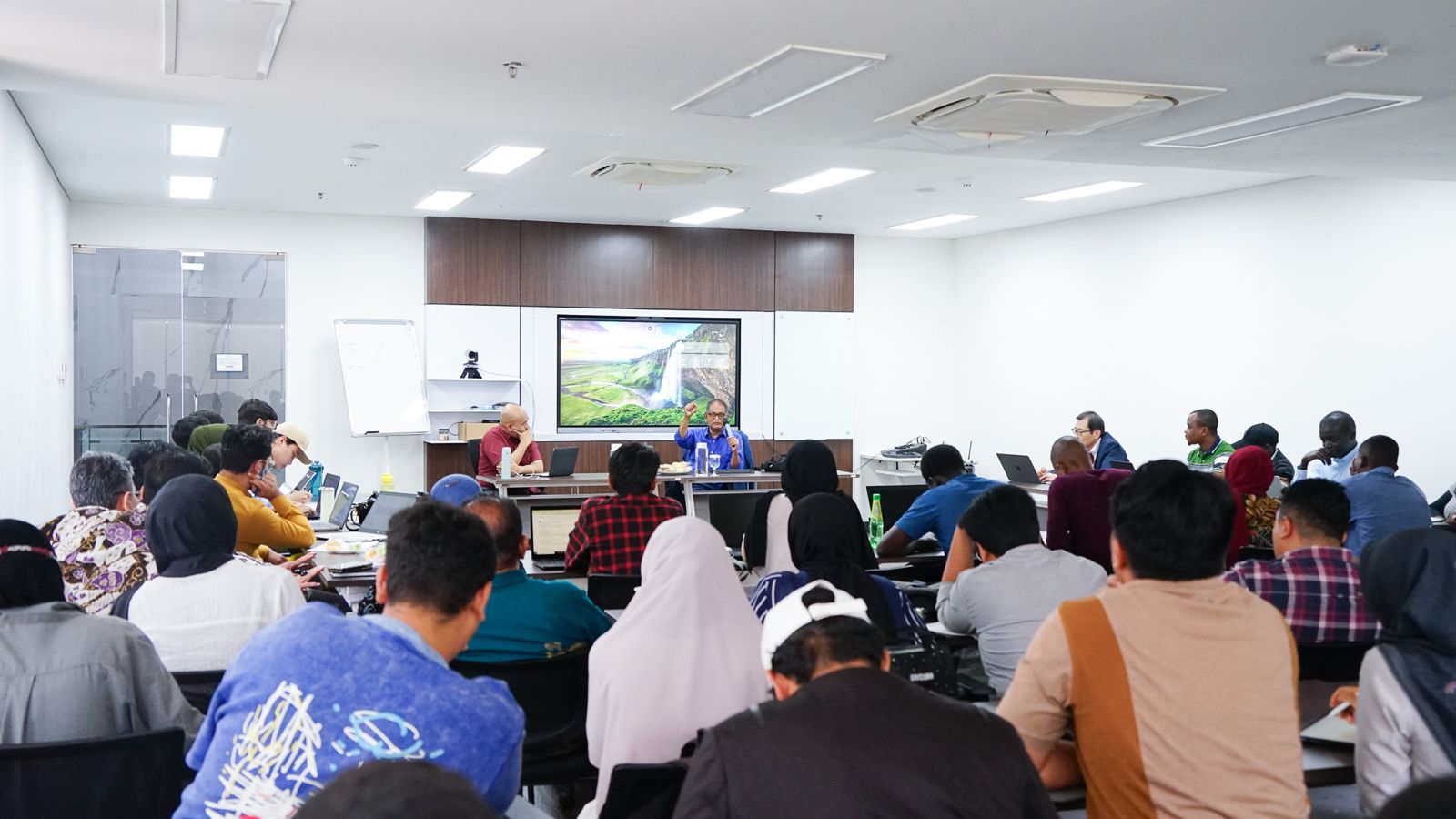Comics of Hell: A Glimpse into Indonesia’s New Order Era
September 30, 2024Contributor: Supriyono | Editor: Dadi Darmadi | Photo: Edwin P. Wieringa & Sarah Permatasari
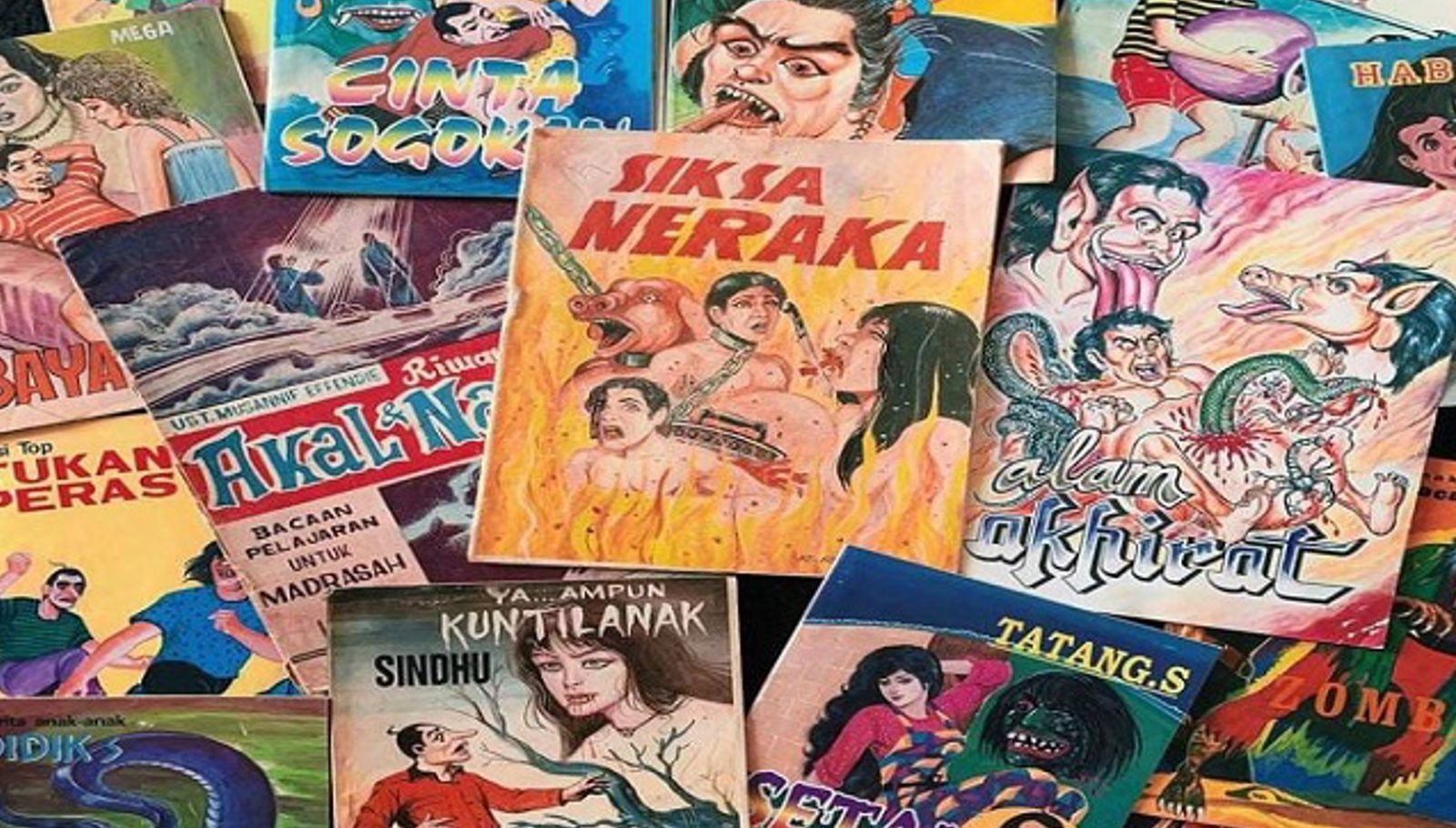
During the UIII Faculty of Social Sciences’ BrownBag event on September 25, 2024, Prof. Dr. Edwin P. Wieringa shed light on a lesser-known aspect of Indonesia’s cultural history: the portrayal of hell in comics during the New Order regime. His presentation, “Everyday Islam in Indonesia: National Identity in the Context of Globalization,” which was based on his ongoing research, delved into how these graphic depictions of hell reflected the political and social climate of the time.
He explained that in the 1970s to 1990s, Indonesian comics enjoyed a golden age, with cheap booklets featuring stories about horror, martial arts, and religious themes. Among the most popular were comics depicting the torments of hell, where sinners endured all manner of bodily punishment. While Indonesia’s authoritarian New Order government maintained strict control over media, these comics were allowed—and even encouraged—because they reinforced religious values that aligned with state ideology.
Prof. Wieringa explained that these images of hell were more than just religious teachings. They acted as a pressure release for a society constrained by censorship, offering a way for people to express their frustrations in a non-threatening way. By focusing on moral failings and their consequences in the afterlife, the comics subtly addressed social and political issues, while avoiding direct criticism of the regime.
“These comics, aimed at a young audience, were inexpensive and widely available, providing pre-internet entertainment while also imparting moral lessons,” he said. The gruesome depictions of hell served as a visual reminder of the importance of being a good Muslim and, by extension, a good Indonesian citizen.
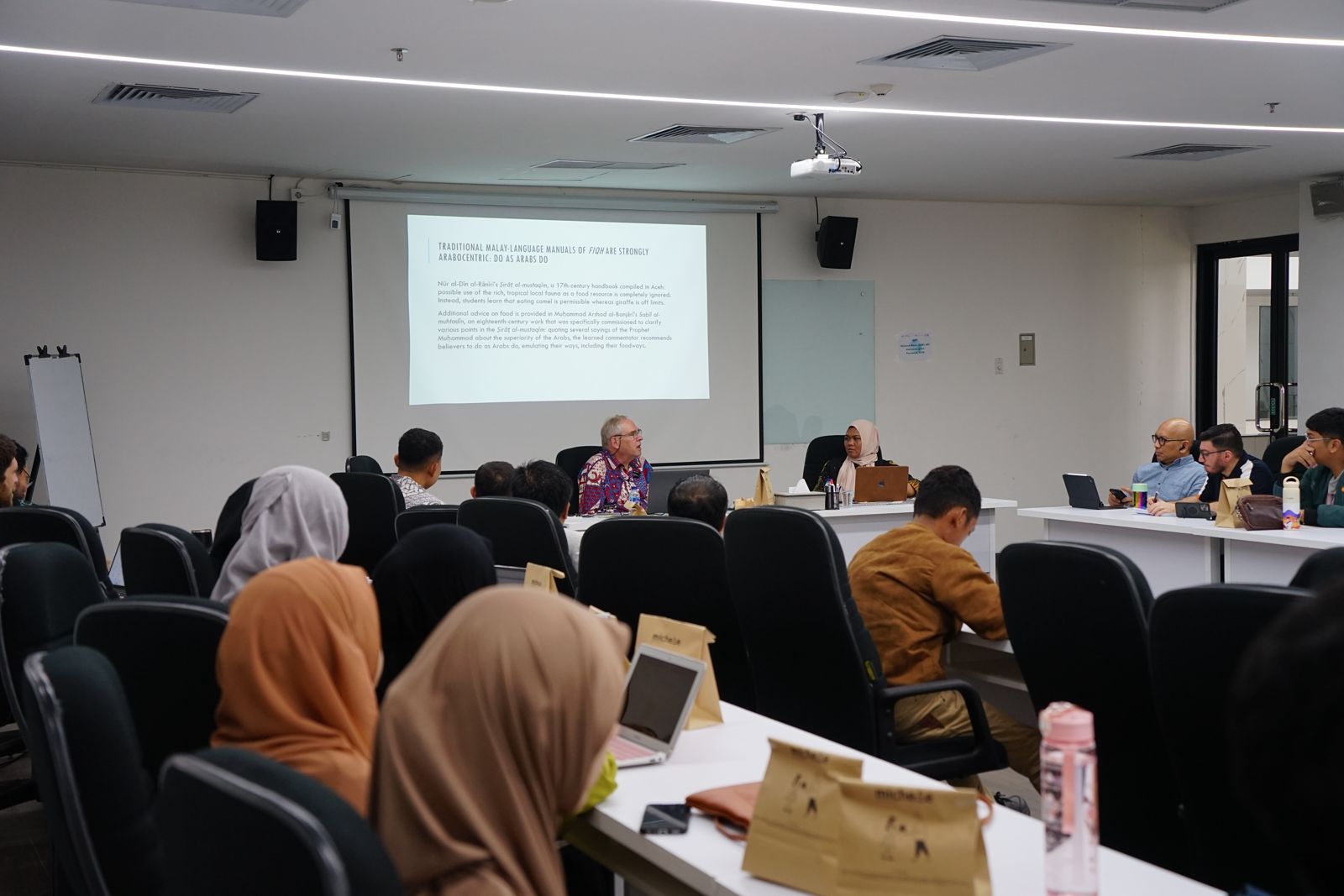
As Prof. Wieringa noted, these depictions of hell functioned as a form of “opium for the people”—offering an outlet for social discontent without challenging the status quo. By framing societal problems through the lens of Islamic teachings, the comics allowed readers to vent their frustrations while remaining within the safe boundaries of acceptable discourse under the New Order.
Prof. Wieringa’s analysis of these comics offers a fresh perspective on how popular culture can be both a reflection of and response to the political landscape, even in highly controlled environments.
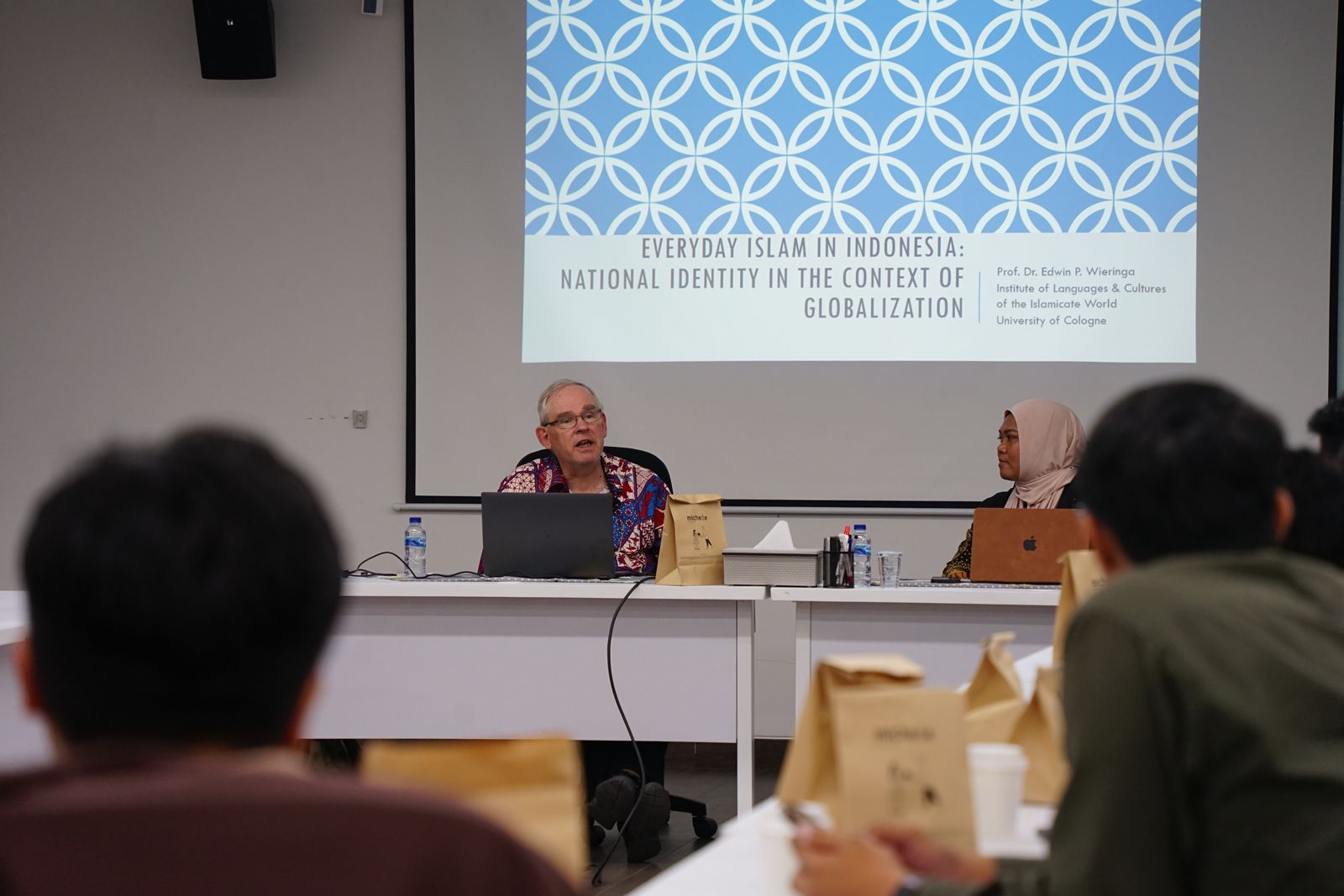
The BrownBag event was part of UIII's Faculty of Social Sciences' ongoing academic series, designed to encourage dialogue on critical issues of culture, politics, and identity. Prof. Wieringa's presentation offered a unique glimpse into Indonesia's past, sparking insightful discussions among attendees about the intersections of religion, media, and state power during the New Order era. At the same event, he also explored the Indonesian identity through food and hajj, further enriching the discussion on Indonesian identity and cultural narratives.
| Read also: Exploring Indonesian Identity Through Food and Hajj with Prof. Edwin P. Wieringa |
- Key Social Science Debates in Islamic Studies: Insights from Prof. Stéphane Lacroix at UIII
- Indonesia Introduces New Approach to Enhance Students’ Higher-Order Thinking
- Sex Trafficking Disguised as Secret Marriage: Dr. Zezen’s Lecture at SOAS University of London
- Islam and National Identity: Dr. Andar Nubowo on Indonesia’s Moderate Islamic Framework
- Green Ramadan: A Sustainable Initiative in the Sacred Month
- Prof. Dr. Phil. Sahiron: Bridging Classical and Contemporary Quranic Studies
- Joel N. Lohr on Indonesia, Higher Education, and Intercultural Dialogue
- Prof. Sahiron Syamsuddin Affirms Ministry’s Support for UIII-Al Azhar Partnership
- 'Indonesia Has Strong Commitment to Islamic Knowledge': Al-Azhar Rector at UIII
- A Green Awakening: How Indonesia’s Muslim Communities Are Leading the Charge for Sustainability
